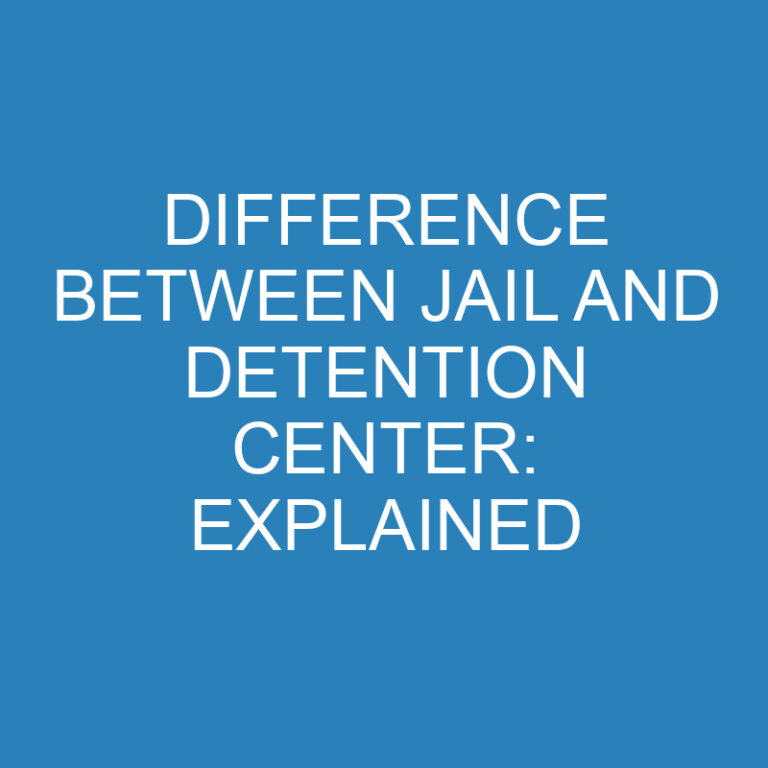
Wondering about the difference between Calvary Chapel and Methodist Church? Well, you’re not alone. Many people are curious about the distinctions between these two religious denominations. In this article, I’ll break down some key points to help shed light on their contrasting beliefs and practices.
Calvary Chapel is a Protestant Christian movement that originated in Southern California in the 1960s. It emphasizes biblical teaching, expository preaching, and a casual worship style. Calvary Chapel places a strong emphasis on personal spiritual growth and encourages believers to have an intimate relationship with Jesus Christ. Services often include contemporary music, heartfelt prayers, and verse-by-verse Bible study.
On the other hand, the Methodist Church is one of the largest Protestant denominations globally. It traces its roots back to England in the 18th century when it emerged as a revival movement under John Wesley’s leadership. Methodists place importance on social justice issues and believe in salvation through faith, good works, and God’s grace. Worship services typically involve hymns, liturgical prayers, sacraments such as baptism and communion, and structured sermons.
While both Calvary Chapel and Methodist Church are Christian denominations that share a belief in Jesus Christ as Lord and Savior, they differ significantly in their worship styles, theological emphasis, and historical origins. Understanding these differences can provide valuable insights into each denomination’s unique approach to spirituality.
What is Calvary Chapel?
Calvary Chapel is a Christian denomination that originated in the United States during the 1960s. It was founded by Pastor Chuck Smith, who sought to create a church that focused on teaching the Bible verse by verse and promoting a personal relationship with Jesus Christ. The name “Calvary Chapel” comes from the hill of Calvary, where Jesus was crucified according to Christian belief.
One of the distinctive features of Calvary Chapel is its emphasis on expository preaching. This means that pastors typically deliver sermons that carefully examine and explain passages of Scripture in a systematic manner. The goal is to help congregants gain a deeper understanding of God’s Word and apply it to their daily lives.
Another characteristic of Calvary Chapel is its informal worship style. Services often feature contemporary music, with an emphasis on heartfelt praise and worship. The atmosphere is generally relaxed, fostering an environment where individuals can come as they are and experience God’s presence without feeling judged or pressured.
Furthermore, Calvary Chapel places a strong emphasis on community and discipleship. Small groups, known as home fellowships or life groups, provide opportunities for members to connect with one another on a more intimate level, share their faith journey, and support each other through life’s challenges. Additionally, there are various ministries within the church that cater to different age groups and interests, such as youth groups, women’s ministries, and outreach programs.
In summary, Calvary Chapel is a Christian denomination known for its commitment to teaching the Bible verse by verse through expository preaching. It promotes authentic worship experiences in an informal setting while emphasizing community and discipleship among its members.
What is the Methodist Church?
The Methodist Church is a Christian denomination that traces its roots back to 18th-century England. It was founded by John Wesley, an Anglican clergyman, and his brother Charles Wesley. The Methodist movement emerged as a response to what they saw as spiritual stagnation within the Church of England at that time.
One of the key beliefs of the Methodist Church is its emphasis on personal faith and salvation. Methodists believe in the importance of experiencing a personal relationship with God through faith in Jesus Christ. They emphasize the need for individuals to have a conversion experience, where they confess their sins and accept Jesus Christ as their savior.
Methodists also place great importance on social justice and community service. They believe in actively living out their faith by helping those in need and working towards creating a more just society. This commitment to social action has led many Methodists to be involved in various charitable initiatives, such as feeding the hungry, advocating for human rights, and supporting education programs.
In terms of worship style, Methodism tends to be more structured compared to other Protestant denominations. Methodist services often include hymn singing, Scripture readings, prayers, and sermons that focus on practical application of biblical principles in everyday life.
Overall, the Methodist Church offers a balance between personal piety and social engagement. Its teachings promote individual spiritual growth while encouraging believers to make a positive difference in their communities. Whether it’s through acts of charity or spreading God’s love through evangelism, Methodists strive to live out their faith with both passion and compassion.
Beliefs and Practices of Calvary Chapel
When it comes to understanding the beliefs and practices of Calvary Chapel, there are several key elements that define this Christian denomination. Let’s delve into some of these core aspects:
- Bible-Centered Teaching:
Calvary Chapel places a strong emphasis on the authority and relevance of the Bible. The teaching style is characterized by verse-by-verse exposition, allowing for a comprehensive understanding of Scripture. This approach aims to provide believers with a solid foundation in biblical principles and encourages personal study and application. - Worship Style:
In terms of worship, Calvary Chapel tends to adopt a contemporary approach while maintaining reverence for God. Services often include modern praise and worship songs led by a worship team or band. The focus is on heartfelt expressions of adoration, aiming to create an atmosphere where individuals can connect with God authentically. - Informal Atmosphere:
Another distinctive feature is the relaxed and informal environment found in many Calvary Chapel churches. The intention behind this approach is to create a welcoming space where people from all walks of life feel comfortable attending services without feeling judged or excluded. - Emphasis on Discipleship:
Calvary Chapel places great importance on discipleship, encouraging believers to grow in their faith through small group studies, mentoring relationships, and various educational programs offered within the church community. This emphasis on discipleship fosters spiritual growth and equips individuals for active ministry involvement. - Evangelism:
A crucial aspect of Calvary Chapel’s mission is spreading the gospel message both locally and globally. Members are encouraged to share their faith with others through personal evangelism efforts as well as participating in missions work around the world. - Autonomy of Local Churches:
While there is unity among Calvary Chapels in terms of shared beliefs and values, each individual church operates autonomously under its own leadership structure without centralized control or hierarchy.
It’s important to note that while these aspects generally characterize Calvary Chapel, practices and beliefs may vary to some extent from one Calvary Chapel church to another. However, the overarching focus on biblical teaching, worship, discipleship, evangelism, and a welcoming atmosphere remains consistent throughout the denomination.
By understanding these key elements of Calvary Chapel’s beliefs and practices, individuals can gain insight into what sets this denomination apart within the larger Christian landscape.
Beliefs and Practices of the Methodist Church
When it comes to understanding the beliefs and practices of the Methodist Church, there are several key aspects that shape their religious identity. Here’s a closer look at what sets the Methodist Church apart:
- Emphasis on Scripture: The Methodist Church places a strong emphasis on the authority of Scripture as the primary source of faith and practice. They believe in the inspiration and guidance of the Bible, viewing it as a valuable tool for learning about God’s will and teachings.
- Salvation by Grace through Faith: Methodists emphasize salvation as an act of God’s grace that is received through faith in Jesus Christ. They believe that all individuals have access to God’s saving grace, which is freely given and not dependent on personal merit or good works.
- The Wesleyan Quadrilateral: One distinctive feature of Methodist theology is what is known as the Wesleyan Quadrilateral. This framework combines four sources – Scripture, tradition, reason, and experience – to guide theological reflection and decision-making within the church.
- Sacraments: The Methodist Church recognizes two sacraments – baptism and Holy Communion (also known as the Lord’s Supper). Baptism signifies initiation into Christian faith, while Holy Communion serves as a means of experiencing spiritual nourishment and unity with Christ.
- Social Justice: Methodists have historically been involved in social justice movements, advocating for equality, inclusivity, and compassion towards others. This commitment stems from their belief in actively living out their faith through acts of love towards all people.
- Worship Style: In terms of worship practices, Methodists typically follow a structured liturgy that incorporates hymns, prayers, scripture readings, sermons, and communal participation. However, individual congregations may vary in their specific worship styles.
These are just some highlights of what defines the beliefs and practices within the Methodist Church. It’s important to note that individual churches within the denomination may have slight variations in their interpretations and practices, but these core principles provide a foundational understanding of Methodist theology and worship.
Differences in Worship and Liturgy
When it comes to worship and liturgy, Calvary Chapel and Methodist Church have distinct differences that shape the way they conduct their religious services. Here are a few key contrasts between the two:
- Worship Style:
- Calvary Chapel: Known for its contemporary worship style, Calvary Chapel emphasizes a more casual and free-flowing approach to worship. It often includes upbeat music with modern instruments and encourages congregational participation through singing, clapping, and raising hands.
- Methodist Church: In contrast, the Methodist Church follows a more structured form of worship. Traditional hymns are commonly sung accompanied by organ or piano music. The service typically involves responsive readings, prayers, and occasional liturgical elements such as creeds.
- Sacraments:
- Calvary Chapel: As an evangelical denomination, Calvary Chapel focuses on preaching the Word of God rather than sacramental rituals. Baptism is practiced but is seen primarily as an outward expression of faith rather than a means of receiving divine grace.
- Methodist Church: Methodists place importance on both baptism and Holy Communion as sacraments. They believe that baptism cleanses individuals from sin and initiates them into the Christian community. Similarly, Holy Communion (also known as the Eucharist) is seen as a means of experiencing Christ’s presence.
- Preaching Approach:
- Calvary Chapel: Sermons in Calvary Chapel tend to be expository in nature, focusing verse-by-verse on biblical texts with an emphasis on practical application for daily life.
- Methodist Church: Methodists follow a lectionary system that provides specific readings from Scripture for each Sunday throughout the year. Sermons often draw from these assigned passages while incorporating personal insights and teachings relevant to the congregation.
- Liturgical Practices:
- Calvary Chapel: With its roots in non-denominational Pentecostalism, Calvary Chapel generally does not adhere to a strict liturgical structure. Services are often characterized by spontaneity, allowing for the leading of the Holy Spirit and impromptu prayers or testimonies.
- Methodist Church: Methodists have a more defined liturgical framework that includes specific orders of worship and rituals. The Book of Worship guides their services, outlining various elements like prayers, responses, creeds, and scripture readings.
- Role of Clergy:
- Calvary Chapel: Leadership within Calvary Chapel is typically non-hierarchical. Pastors are seen as shepherds or teachers who guide the congregation in their spiritual journey but do not hold higher ecclesiastical titles or authority.
- Methodist Church: Methodism has a structured hierarchy with ordained clergy playing significant roles in leading worship services and administering sacraments. Bishops oversee multiple churches within a geographical area.
These differences in worship style and liturgy reflect the unique traditions and beliefs cherished by both Calvary Chapel and the Methodist Church. Understanding these distinctions can help individuals choose a religious community that aligns with their personal preferences and spiritual needs.
Conclusion
In summary, the Calvary Chapel and Methodist Church are two distinct religious denominations with their own unique characteristics and practices. While both share a common belief in Christianity, there are several key differences that set them apart.
- Worship Style:
- Calvary Chapel: Known for its informal and contemporary worship style, Calvary Chapel emphasizes passionate praise and worship through modern music, often accompanied by a band or choir.
- Methodist Church: The Methodist Church follows a more traditional worship style, incorporating hymns, liturgy, and sacraments into their services.
- Church Structure:
- Calvary Chapel: Characterized by its decentralized structure, each Calvary Chapel operates autonomously under the leadership of its senior pastor.
- Methodist Church: In contrast, the Methodist Church has a hierarchical structure with clergy appointed to different churches by bishops.
- Theology:
- Calvary Chapel: Emphasizes biblical teaching and holds to conservative evangelical beliefs. They place a strong emphasis on personal Bible study and believe in the gifts of the Holy Spirit.
- Methodist Church: Rooted in Wesleyan theology, Methodists emphasize social justice issues alongside personal piety. They believe in salvation through faith alone but also stress good works as evidence of one’s faith.
- Sacraments:
- Calvary Chapel: Generally practices two sacraments – baptism and communion – as symbolic acts rather than means of grace.
- Methodist Church: Recognizes these same sacraments but also believes in them as means of receiving God’s grace.
- Governance:
- Calvary Chapel: Each church is self-governing with minimal oversight from external bodies or denominational authorities.
- Methodist Church: Operates under a connectional system where decisions are made collectively at various levels within the denomination.
It’s important to note that while these differences exist, both denominations strive to fulfill their mission of spreading the Gospel and nurturing believers in their faith journey. Ultimately, the choice between Calvary Chapel and the Methodist Church will depend on individual preferences in worship style, theological beliefs, and community structure.
As with any religious decision, it’s advisable to visit and engage with local congregations to gain a better understanding of their practices and teachings before making a commitment.






